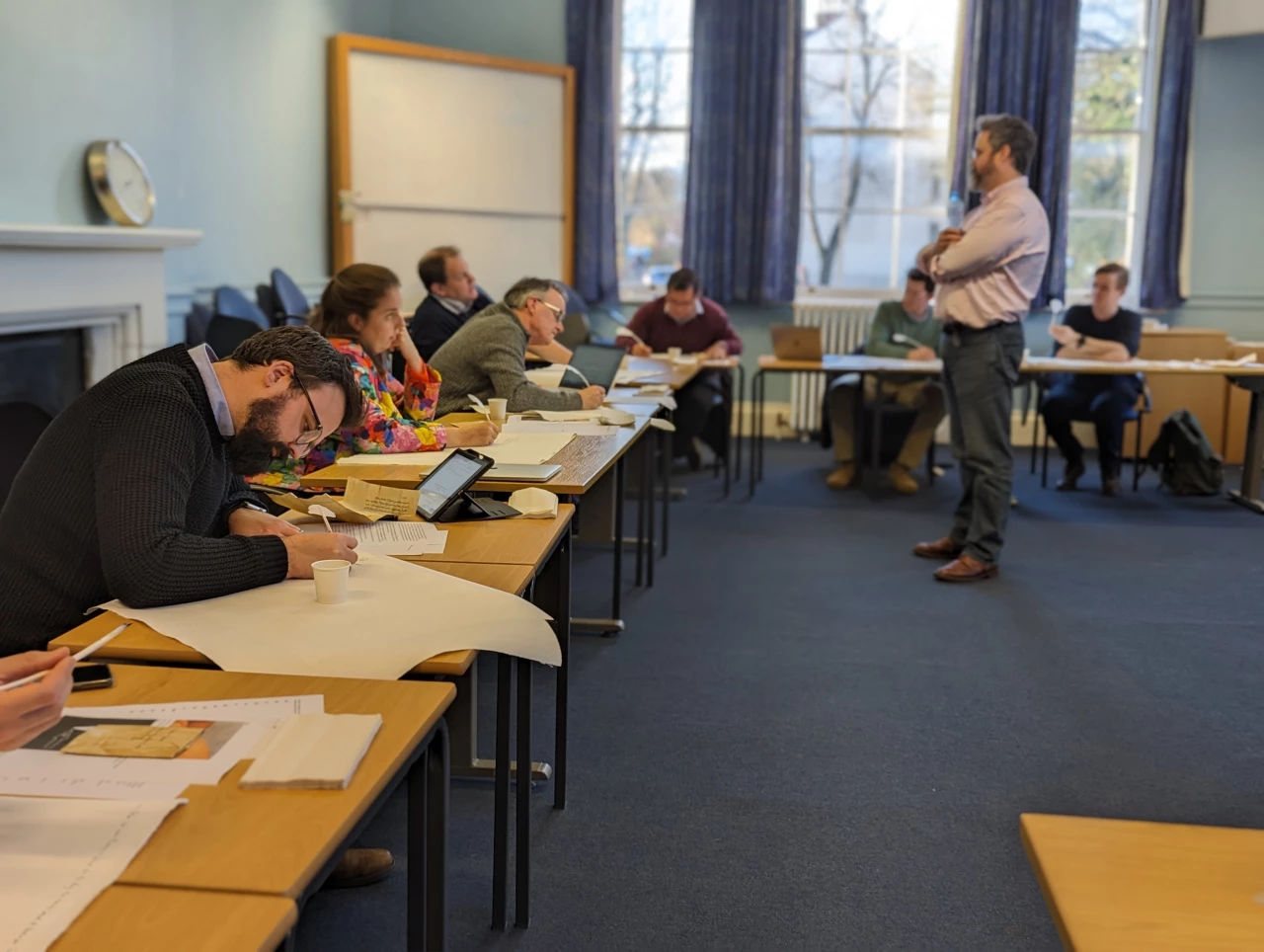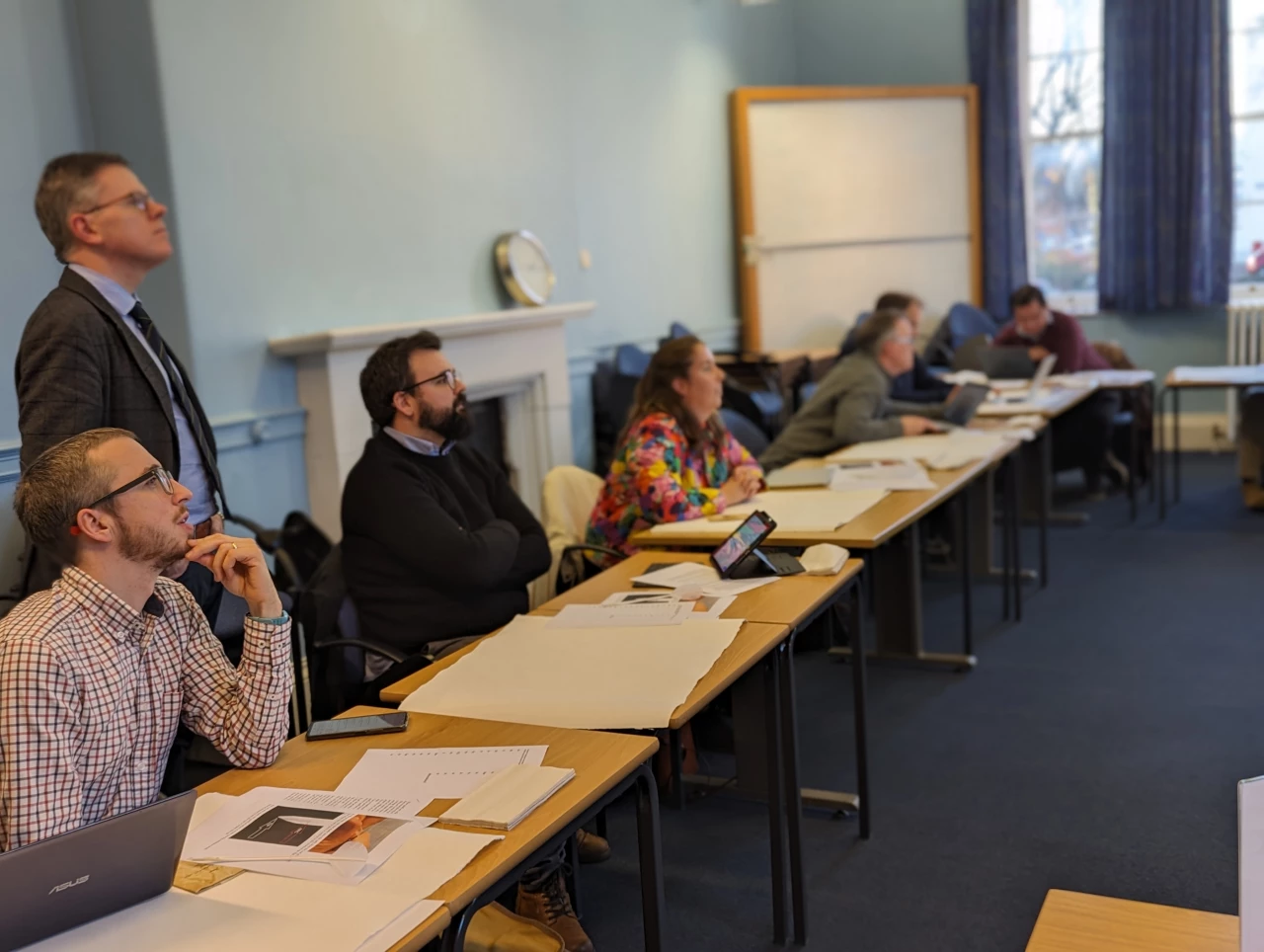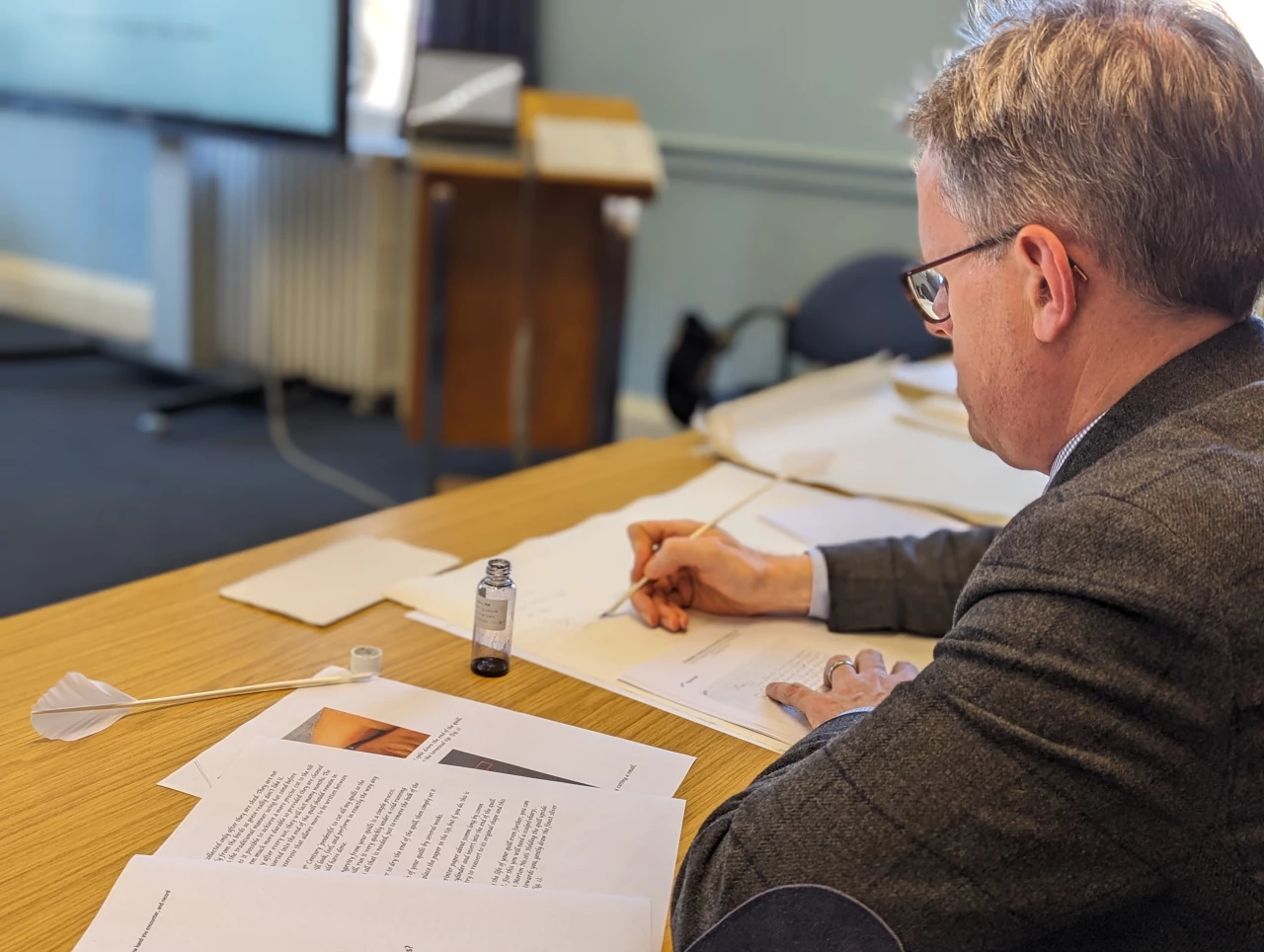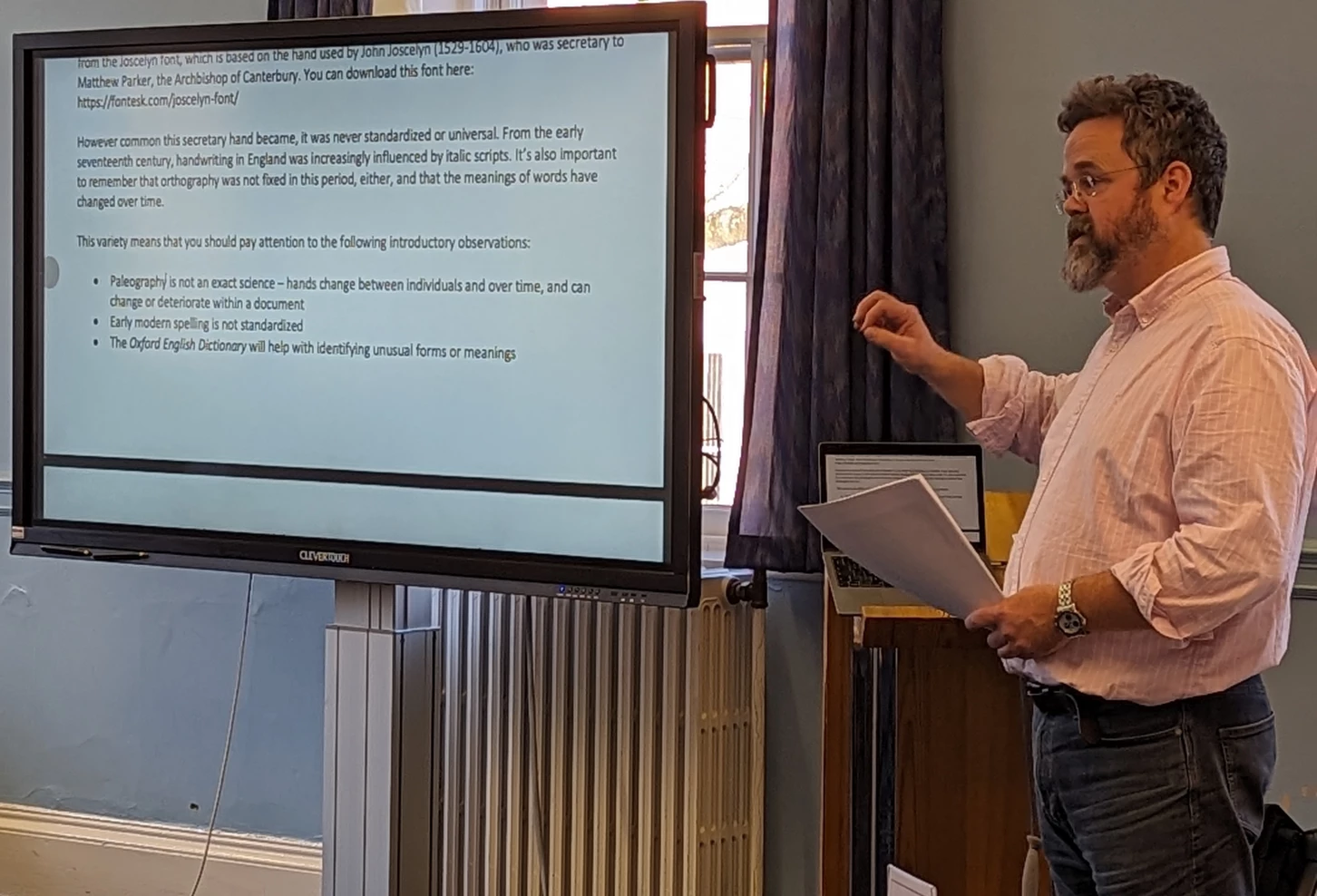On Monday the 27th of November a group of early career researchers gathered in Union Theological College to hone their skills in early modern palaeography. Led by Professor Crawford Gibbon and Dr Martyn Cowan, the workshop focussed on English italic and secretary hands from the sixteenth and seventeenth centuries.
Equipped with ethically sourced quills (harvested from fallen feathers rather than plucked from recalcitrant geese), we practised writing in secretary hand in order to experience early modern penmanship for ourselves. Palaeography is not an exact science and familiarity with the formation of letters in different hands can help facilitate reading and transcription.

During the session we read a 1663 letter from Jeremy Taylor, deciphered various dates relating to John Owen’s appointment and the baptisms and deaths of his children in the Fordham and Coggeshall church books, and transcribed a page from Lucy Hutchinson’s Order and Disorder.

As the afternoon drew to a close, we tackled transcribing sections of Owen’s sermon on Isaiah 40:31 (1673). Not only did this put our enhanced palaeography skills to good use, but so too did we have the pleasure of working with material that had never been transcribed before.
I’d like to offer my sincere thanks, on behalf of all participants, to Crawford and Martyn for their good humour and willingness to share their expertise. We look forward to the next session!

Anna-Rose Shack is a PhD candidate at the Amsterdam School of Historical Studies at the University of Amsterdam. Her doctoral project is concerned with how early modern female poets represent and articulate vulnerable selfhood in lyric poetry.

